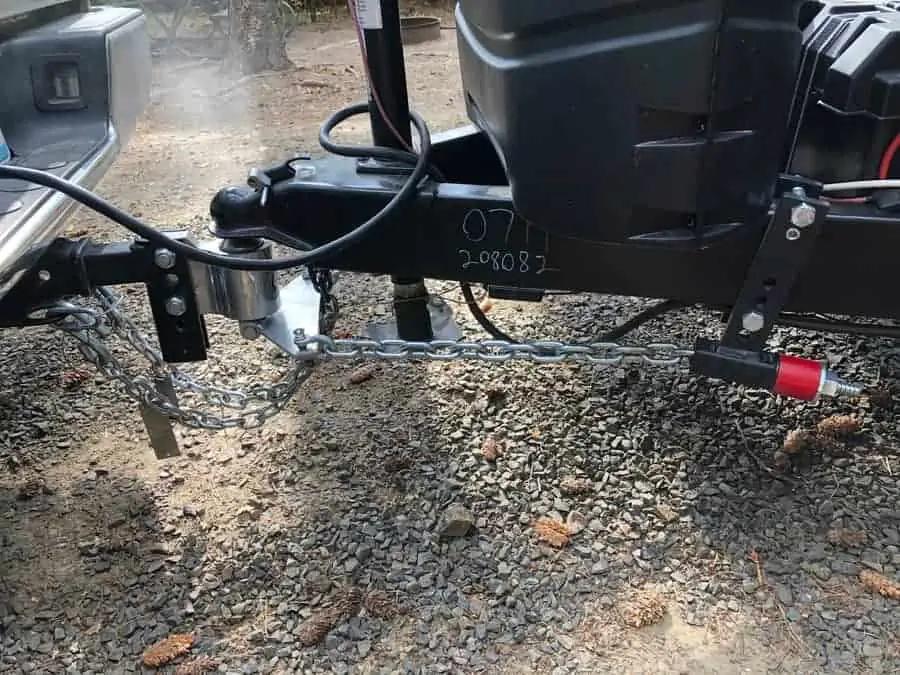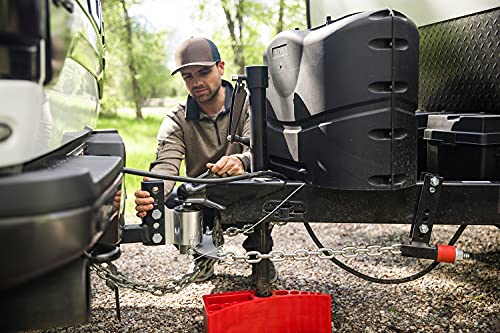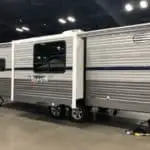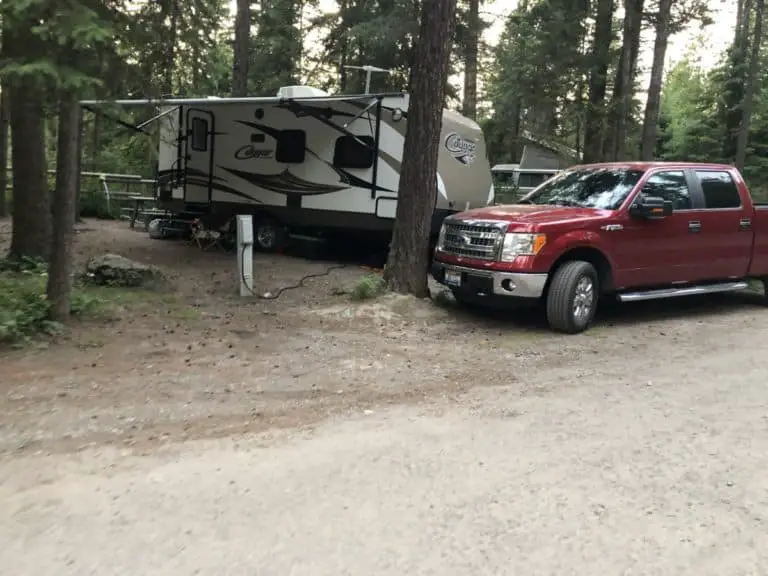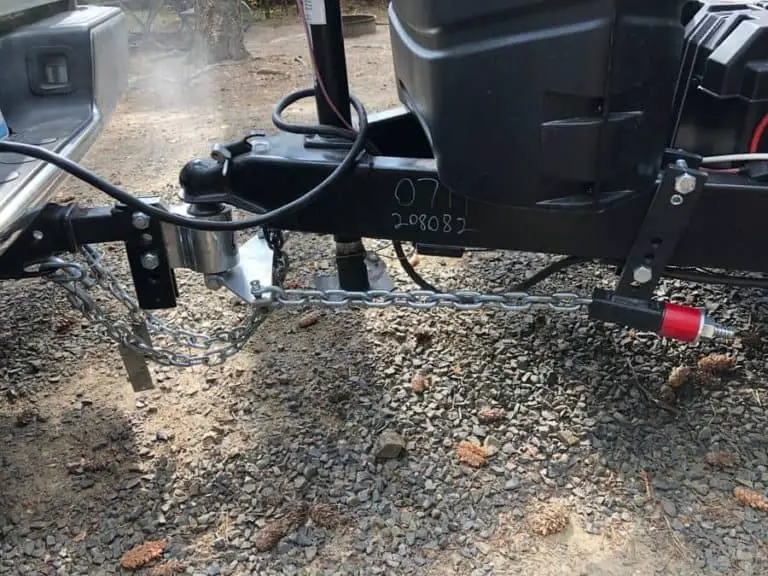Do Weight Distribution Hitches Wear Out? How to make them Last
In terms of overall durability, weight distribution hitches (WDH) are one of the most durable types of hitches. Unfortunately, nothing in this world lasts forever and that includes your weight distribution hitch. While they might last longer than certain other types of hitches, there’s a lot that goes into determining the lifespan of your WDH.
Although they’re durable and long-lasting, weight distribution hitches will wear out eventually. You can prevent wear and tear on your hitch by caring for and maintaining it properly and by purchasing a high-quality hitch. However, no matter what you do, it’s only a matter of time before your hitch wears out. Odds are, however, that the sway bars will wear out before the hitch itself does.
No matter what part of your weight distribution hitch wears out first, it’s important to know the signs to look for. Towing your RV or trailer with a hitch that’s giving out is very unsafe and you should never do it. If you’re wondering what the signs of wear and tear are on a WDH and how to make yours last as long as possible, you’ve come to the right place.
Signs of Wear and Tear on a Weight Distribution Hitch
Because of the intense pressure that weight distribution hitches are subjected to, it’s only natural that they wear out over time. Luckily, there are several ways to tell if your hitch is wearing out before it actually goes bad. Knowing these signs and taking action will keep you and your rig safe during towing.
Rust and Corrosion
The easiest issue to spot with all things made of steel and metal is rust and corrosion. Weight distribution hitches are made of steel, and, although they’re coated to prevent rust for as long as possible, it’s only a matter of time before it begins. The harsher the conditions are that you use your hitch in, the more likely it is that rust will start within the first several months or years of use.
You can take certain measures like painting or coating the various components of your hitch, but they will only last for so long.
Listen for Suspicious Noises
Another sign that there might be something amiss with your hitch is if you hear strange creaks, squeaks, or groans coming from it. While these noises are sometimes normal, because you’re hauling a ton of weight, they should only occur within reason. You can take care of these noises in most cases with grease or lube, but only for so long.
If you’re finding that you need to apply grease or lubricant to your trailer hitch more often than normal, it could be a sign that it’s at the end of the line.
Bent Sway Bars
The sway bars that accompany certain types of weight distribution hitches are just as strong and durable as the hitch itself. However, they often get put under more strain than the hitch when you make tight turns or drive in reverse. Eventually, this can bend the bars which will compromise their integrity. You should check your sway control bars for bends every time before you connect them to your truck and trailer.
Consumables
When I say consumables, I mean bearings, bushings, nuts, bolts, and other wear items. On our Andersen hitch, which is our favorite on the market, there is a wear item which is their anti-sway friction cone. This will wear out after time, but luckily has a lifetime warranty for replacements. We have just received a new one after five years.
When Should I Replace My Weight Distribution Hitch?
Because of how weight distribution hitches are made, there’s no exact timetable as to when they’ll give out. Some hitches can last from ten to twenty years and even longer. Other hitches of lower quality, however, might give out after a few months or years. It all depends on the quality of your hitch and how well you take care of it.
How do I Know if My Weight Distribution Hitch is Working?
The whole point of having a weight distribution hitch is to evenly distribute the trailer tongue weight along every part of your towing vehicle. It takes the weight off the rear axle of your truck or SUV and distributes it along the rear and front axles. As a result, the connection between your trailer and the towing vehicle should be evenly level.
However, if you hook your trailer up and start to notice the back of the towing vehicle sagging rather than remaining level, it’s a sign that your hitch is starting to give out. It can no longer distribute the trailer weight evenly and cannot be relied upon.
Can You Put Too Much Tension on a Weight Distribution Hitch?
Just as you can have too little tension on a weight distribution hitch, you can also have too much. When this happens, the result will be trailer sway and an uncomfortable towing experience. It’s important to choose a weight distribution hitch based on the weight of your trailer tongue plus any weight that will be added to the front of your RV or trailer. Making the wrong choice will result in too much or too little tension on your weight distribution hitch.
Do Equal-i-zer Hitches Wear out?
Equal-i-zer hitches are one of the most popular types of weight distribution hitches on the market. A big reason for their popularity is because of how durable they are. However, even Equal-i-zer hitches will wear out after enough time and use.
A good way to tell if this is happening is if you notice that it can no longer evenly distribute weight throughout your towing vehicle and the trailer or RV you’re towing. Rather than having a level ride, the rear of the truck will slump under the excessive weight of whatever you’re towing.
How Do I Maintain My Weight Distribution Hitch?
The best way to ensure that your weight distribution hitch has a long lifespan is by properly caring for it and here are some tips and tricks as to how to do just that.
- Choose a weight distribution hitch according to the weight of your trailer and the trailer tongue weight. This will ensure the right amount of tension on the weight distribution bars and hitch.
- When you’re not using your weight distribution system, store the bars in a dry area out of the elements
- You can store the hitch in the same area or leave it on the back of your towing vehicle. If you do so, however, you should invest in a ball cover to protect it from rust and corrosion.
- Keep an eye out for rust, corrosion, scratches, and cracks on your hitch and sway bars and repair them as needed.
- If you hear squeaks or creaks, you should grease or lubricate the trailer ball to reduce friction.
As long as you take proper care of your weight distribution hitch, it should enjoy a long lifespan.
Be the first to be notified about FREE tips, hints, coupon codes, and email-exclusive information. All for FREE!

